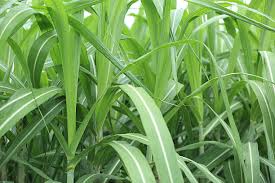The Garlic Cloves: Economic Importance, Uses, and By-Products
Garlic cloves, the small individual segments that make up a garlic bulb, are not only a fundamental ingredient in culinary dishes but also possess remarkable medicinal properties. Scientifically known as Allium sativum, garlic has been cultivated and revered for thousands of years across various cultures for its culinary and therapeutic benefits.
Each garlic bulb consists of multiple cloves arranged in a concentric pattern, enclosed within a papery membrane. These cloves vary in size, shape, and color, depending on the garlic variety and growing conditions. Typically, garlic cloves are elongated and taper towards one end, with a flattened base where they attach to the bulb. The outer skin of garlic cloves is thin and papery, while the inner flesh is firm and composed of multiple layers.
The distinct aroma and flavor of garlic cloves are attributed to their high content of sulfur compounds, particularly allicin. When garlic cloves are crushed, chopped, or minced, enzymes within the cloves convert alliin, a sulfur-containing amino acid, into allicin, which is responsible for the characteristic pungent odor and taste of garlic. Additionally, garlic cloves contain other bioactive compounds such as flavonoids, vitamins, and minerals, which contribute to their nutritional value and health benefits.
In culinary applications, garlic cloves are prized for their ability to enhance the flavor of savory dishes and impart a unique aroma. They are commonly used as a seasoning or flavoring agent in a wide range of cuisines, including Italian,
SAsian, Mediterranean, and Middle Eastern cuisines. Garlic cloves can be used whole, sliced, minced, or crushed, depending on the desired intensity of flavor and texture. They are added to soups, stews, sauces, marinades, dressings, and sautés to impart a savory, umami-rich taste to dishes.
The Economic Importance and Uses of Garlic Cloves

Garlic cloves, despite being small in size, carry significant economic importance and offer a plethora of uses across various industries. Here are 18 key economic aspects and uses of garlic cloves:
1. Culinary Use: Garlic cloves are a staple ingredient in countless culinary recipes worldwide, enhancing the flavor and aroma of dishes such as pasta, stir-fries, soups, and sauces.
2. Food Processing: Garlic cloves are processed into garlic powder, garlic salt, and garlic oil, used extensively in food manufacturing for seasoning and flavoring various processed foods.
3. Medicinal Purposes: Garlic cloves are utilized in traditional and alternative medicine for their potential health benefits, including boosting the immune system, lowering cholesterol, and improving heart health.
4. Pharmaceutical Industry: Extracts from garlic cloves are used in pharmaceutical formulations for their medicinal properties, incorporated into supplements and medications for various health conditions.
5. Natural Remedies: Garlic cloves are employed in natural remedies and home remedies for treating ailments such as colds, flu, infections, and digestive issues.
6. Agricultural Applications: Garlic cloves are used in organic gardening and agriculture as a natural pest repellent to deter insects and pests from crops.
7. Cosmetic Products: Extracts from garlic cloves are used in cosmetic products for their purported skin-nourishing and anti-inflammatory properties, incorporated into skincare products such as creams, lotions, and serums.
8. Flavoring Agents: Garlic cloves are used as flavoring agents in processed foods such as snacks, condiments, dressings, and marinades, contributing to their taste and aroma.
9. Export Industry: Garlic cloves are exported globally, contributing to international trade and commerce, particularly in regions known for garlic cultivation.
10. Value-added Products: Garlic cloves are used to create value-added products such as pickled garlic, garlic-infused oils, and garlic spreads, sold in specialty food markets and gourmet stores.
11. Culinary Education: Garlic cloves are used in culinary education and training programs to teach students about seasoning, flavoring, and culinary techniques.
12. Culinary Tourism: Garlic festivals and culinary events featuring garlic cloves attract tourists and food enthusiasts, promoting local agriculture and tourism.
13. Foodservice Industry: Restaurants, cafes, and catering businesses use garlic cloves extensively in their menus, offering dishes that showcase the flavor and versatility of garlic.
14. Home Cooking: Garlic cloves are a staple ingredient in home kitchens, used by home cooks to prepare delicious and nutritious meals for themselves and their families.
15. Seasonal Markets: Garlic cloves are sold at farmers markets, seasonal markets, and roadside stands, providing income opportunities for small-scale farmers and growers.
16. Cooking Shows: Garlic cloves are featured in cooking shows and culinary demonstrations, highlighting their culinary uses and versatility to audiences worldwide.
17. Recipe Development: Chefs, food bloggers, and recipe developers create innovative recipes that showcase the flavor and versatility of garlic cloves, inspiring home cooks to experiment with new dishes.
18. Cultural Significance: Garlic cloves hold cultural significance in many culinary traditions and cuisines, symbolizing flavor, vitality, and health in culinary folklore and traditions.
Read Also: Short Hair Cat Breeds Description and Complete Care Guide
The Products and By-products That Can Be Derived From Garlic Cloves

Garlic cloves yield various products and by-products that find applications in different industries. Here are 17 examples:
1. Garlic Powder: Garlic cloves are dried and ground into a fine powder, used as a seasoning and flavoring agent in food manufacturing and processing.
2. Garlic Oil: Garlic cloves are crushed and macerated in oil to extract garlic-infused oil, used for cooking, flavoring, and aromatherapy.
3. Garlic Salt: Garlic cloves are combined with salt to create garlic salt, a seasoned salt used for seasoning and flavoring various dishes.
4. Pickled Garlic: Garlic cloves are preserved in vinegar or brine to create pickled garlic, a tangy and flavorful condiment enjoyed on its own or as a garnish.
5. Garlic Paste: Garlic cloves are minced or crushed into a paste, used as a flavoring and seasoning agent in cooking and food preparation.
6. Garlic Extracts: Garlic cloves are processed to extract bioactive compounds, used in pharmaceuticals, supplements, and natural remedies for their medicinal properties.
7. Garlic Supplements: Garlic cloves are encapsulated or formulated into supplements, consumed for their potential health benefits, including cardiovascular support and immune health.
8. Garlic Chips: Garlic cloves are thinly sliced and fried or baked until crispy, creating garlic chips, a crunchy and flavorful snack enjoyed on its own or as a topping.
9. Garlic Vinegar: Garlic cloves are infused into vinegar to create garlic-infused vinegar, used in cooking, dressings, marinades, and sauces for added flavor.
10. Garlic Spread: Garlic cloves are blended with butter or oil to create garlic spread, used as a condiment, dip, or topping for bread, crackers, and vegetables.
11. Garlic Marinade: Garlic cloves are crushed or minced and combined with oil, vinegar, herbs, and spices to create a flavorful marinade for meats, poultry, seafood, and vegetables.
12. Garlic Salsa: Garlic cloves are diced or minced and combined with tomatoes, onions, peppers, and cilantro to create a zesty and flavorful salsa, perfect for dipping and topping.
13. Garlic Soup Base: Garlic cloves are sautéed with onions and other vegetables to create a flavorful soup base, used as a foundation for various soups, stews, and sauces.
14. Garlic Jelly: Garlic cloves are cooked with sugar and pectin to create a sweet and savory garlic jelly, used as a spread or condiment for bread, cheese, and meats.
15. Garlic Infused Honey: Garlic cloves are infused into honey to create a unique and flavorful condiment, enjoyed as a topping for desserts, cheese, and fruits.
16. Garlic Fermented Products: Garlic cloves are fermented to create products such as black garlic, garlic vinegar, and garlic kimchi, prized for their complex flavors and health benefits.
17. Garlic Pest Repellent: Garlic cloves are crushed or minced and mixed with water to create a natural pest repellent spray for plants and crops, deterring insects and pests without the use of chemicals.
Read Also: White Persian Cat Breed Description and Complete Care Guide
Frequently Asked Questions (FAQ’s) About Garlic Cloves

1. Can you eat garlic cloves raw?
Yes, garlic cloves can be consumed raw, although their pungent flavor may be too intense for some palates. Raw garlic cloves are often used in salad dressings, dips, and spreads.
2. How do you store garlic cloves?
Garlic cloves should be stored in a cool, dry place away from direct sunlight. They can be stored in a mesh bag, garlic keeper, or paper bag for optimal air circulation and freshness.
3. How long do garlic cloves last?
When stored properly, garlic cloves can last for several weeks to several months. However, they may begin to sprout or deteriorate over time, so it’s best to use them within a few months of purchase.
4. Can you freeze garlic cloves?
Yes, garlic cloves can be frozen for long-term storage. They can be peeled and chopped or left whole before freezing. Frozen garlic cloves can be used directly in cooked dishes without thawing.
5. Are garlic cloves and garlic bulbs the same thing?
No, garlic cloves and garlic bulbs are not the same. Garlic bulbs are composed of multiple cloves arranged in layers, while garlic cloves are the individual segments that make up a garlic bulb.
6. Are garlic cloves healthy?
Yes, garlic cloves are packed with nutrients and bioactive compounds that have been linked to various health benefits, including improved heart health, immune support, and antioxidant protection.
7. Can you grow garlic from cloves?
Yes, garlic cloves can be planted in the ground to grow garlic plants. Each clove will produce a new garlic plant with a bulb containing multiple cloves.
8. How do you peel garlic cloves easily?
To peel garlic cloves easily, gently crush the clove with the flat side of a knife or the heel of your hand, then remove the papery skin. Alternatively, you can place the cloves in hot water for a few minutes before peeling.
9. Are garlic cloves genetically modified?
No, garlic cloves are not genetically modified. Garlic is typically grown through traditional breeding methods and is not genetically engineered.
10. Can garlic cloves be used as a natural remedy?
Yes, garlic cloves have been used for centuries in traditional medicine for their potential health benefits, including antibacterial, antiviral, and anti-inflammatory properties. They are used in natural remedies to treat various ailments and promote overall well-being.
Read Also: Gazania Care 101: How to Keep Your Garden Blooming









